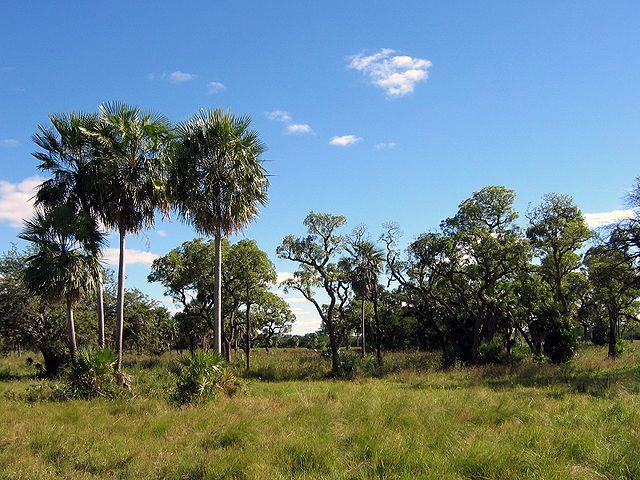
The global meat industry says it is becoming more sustainable. More national industries have launched a sustainable roundtable or advisory board, and an international organization focused on sustainable beef will meet next month in Alberta. More food companies say that they are taking steps to ensure that their supply chains are mitigating their impacts on people and the environment. But according to the Union of Concerned Scientists (UCS), the world’s largest producers, retailers and restaurant chains in the world are not doing enough to decouple the impacts of their business from deforestation.
In fact, the UCS report claims that the international beef sector is responsible for twice as much deforestation than palm oil, soy and wood products combined. Much of the ongoing destruction, says UCS, is occurring in South America, where rain forests rich in biodiversity are being cleared and converted into pastureland for cattle.
UCS estimates that tropical deforestation is responsible for approximately 10 percent of all global warming emissions, with beef production the largest driver behind this forest loss, especially in South America.
Researchers evaluated 13 large companies on a variety of criteria. In turn they developed a scorecard that accounted for whether or not these companies have made zero deforestation sourcing commitments, how transparent their commitments actually are and the degree to which they have systems in place to monitor deforestation.
The results, insists UCS, show that even the companies that scored highest on this scorecard are still responsible for an excessive amount of deforestation. Walmart, McDonald’s and Mars Inc. may have made the most progress amongst the world’s largest companies, but UCS faults them for leaving loopholes in their commitments that allow for continued deforestation. The UCS study says these companies have an opportunity to lead even further if they are more public about their implementation and verification systems, and back them up with audits that are disclosed to their stakeholders.
And while the Amazon in Brazil often scores the majority of attention, UCS says the country’s savannah-like cerrado is also under siege. The gran chaco region, which is spread across Brazil, Argentina, Paraguay and Bolivia, has also seen more of its forest fall to ranching and agriculture. The problem is particularly acute in Paraguay, where despite anti-deforestation laws that have earned the praise of NGOs in the past, the felling of forests to raise beef is going unchecked – and most beef produced in this inland country is exported.
A UCS analysis concluded that over the past five years alone, man-made fires and other deforestation processes led to the release of 1.45 billion metric tons of carbon into the air – the equivalent of the pollution emitted by 211 coal-fired power plants.
UCS has harsh criticism for the other companies it evaluated in this survey. Burger King, ConAgra, Hormel, Jack’s Links, Kroger, Pizza Hut, Safeway and Wendy have all been named by UCS for falling short on the public commitments they've made to stop deforestation within their supply chains.
In order to halt deforestation, UCS is calling for these companies to embrace public-private sector agreements that increase transparency and bolster local environmental laws. Earlier this decade, pressure from Greenpeace led to the G4 agreement, to which four of the largest meatpackers in Brazil agreed to take measures guaranteeing that they not purchase meat from ranchers who have had ties to deforestation.
While that agreement has its share of loopholes, the evidence suggests that it has helped to halted the pace of deforestation in the Amazon. But one problem in Brazil and other cattle producing countries is that many cattle are produced by ranches that have indirect ties to meatpacking companies. The nature of ranching is that while it is easy to monitor deforestation and other data from direct cattle suppliers, plenty of cattle are bought and sold, and moved and transferred, from ranch to ranch. And that is where the trouble often starts, as it is difficult for companies and their direct suppliers to gauge whether any environmental (or human rights abuses), have occurred or not.
To solve the problem, UCS is launching a campaign today that challenges these companies to decouple deforestation from their sourcing commitment. Saying that they are doing so is not enough: Companies need to guarantee that their beef has no links to deforestation, and can provide the data necessary in order to verify such claims, says UCS.
The NGO ran a similar awareness campaign in recent years that highlighted the global palm oil industry’s environmental impact. The result, says UCS, engaged millions of consumers with the result that 26 food companies agreed to purchase only responsibly sourced palm oil with no ties to forest destruction.
Image credit: Ilusona/Wiki Commons

Leon Kaye has written for 3p since 2010 and become executive editor in 2018. His previous work includes writing for the Guardian as well as other online and print publications. In addition, he's worked in sales executive roles within technology and financial research companies, as well as for a public relations firm, for which he consulted with one of the globe’s leading sustainability initiatives. Currently living in Central California, he’s traveled to 70-plus countries and has lived and worked in South Korea, the United Arab Emirates and Uruguay.
Leon’s an alum of Fresno State, the University of Maryland, Baltimore County and the University of Southern California's Marshall Business School. He enjoys traveling abroad as well as exploring California’s Central Coast and the Sierra Nevadas.














